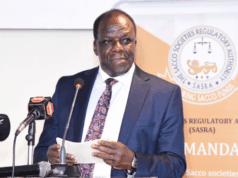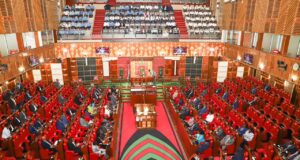Extortion and bribery have crept deep into the arteries of our state institutions, creating a hostile business environment that is suffocating investment and growth. Investors are not just worried about economic headwinds but also about a system that has normalized corruption as part of the cost of doing business in Kenya.
Registering a business in Kenya today is relatively simple. Compliance at the Business Registration Services is almost seamless, and this has encouraged many to take the first step into entrepreneurship.
However, the real elephant in the room emerges immediately after registration. Securing compliance certifications and licenses is a nightmare, particularly for foreign investors who have become the prime targets for extortion. Tales of frustrated investors are everywhere.
At the Kenya Bureau of Standards, at the National Environment Management Authority, at health licensing organisations, and at the Kenya Revenue Authority, investors recount endless frustrations that are only eased through bribes.
The result is a growing number of businesses that pay rent and keep staff on payroll for years without ever manufacturing a single product. They are taken round in circles, their investments stalled, and their capital slowly drained. The cost of corruption has made investor flight a frightening reality. Many investors have quietly exited, while others have relocated to neighboring countries where compliance is clearer, fairer, and less punitive.
The problem is compounded by monopolies and powerful import cartels. Where a product has strong demand, entrenched interests often block local manufacturing so that they can protect their import culture and sustain market domination.
New investors who express interest in producing locally are frustrated at every turn. This stranglehold must be broken if Kenya is serious about industrialization.
The consequences are far-reaching. Capital flight is accelerating as manufacturers choose to operate in friendlier markets in East Africa and beyond. Some companies resort to a troubling shortcut: importing finished products, making minor changes locally, and then branding them as Made in Kenya.
Others simply place the last component of a manufactured product in Kenya while the bulk of the work is done abroad. Both practices deny the country revenue, deny Kenyan youth employment opportunities, and erode the credibility of our manufacturing sector.
Another concern is the preference for licensing assembly plants instead of promoting true manufacturing. Assembly is not industrialization.
It is a halfway measure that provides limited jobs but does not create the full ecosystem of skills, supply chains, and value addition that genuine manufacturing brings. By encouraging assembly over manufacturing, the government has inadvertently slowed down growth and locked the country into dependency.
Kenya needs a reset. The government must go beyond making business registration simple. It must deal with corruption decisively, streamline licensing processes, and dismantle monopolies that frustrate competition.
Investor protection should not just be spoken about in economic blueprints but must be seen in action. If this is not done, investors will continue to walk away, and Kenya will keep losing opportunities that could create industries, jobs, and revenue that would transform the economy.















